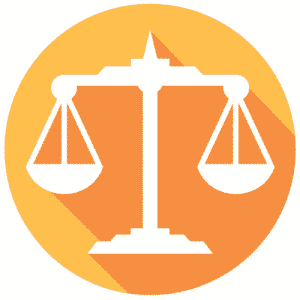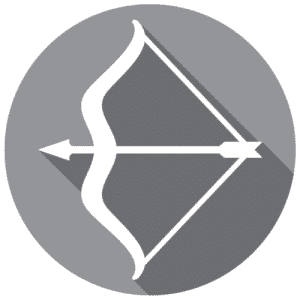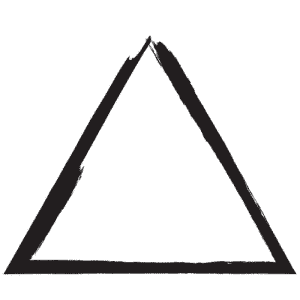Astrology is the study of the influence and impact that far-away cosmic objects have on human lives on planet earth. Usually, these influences are stars and planets.
The position of the sun, stars, moon, and planets at the time of people’s births – and not their conception – is known to influence their personality, shape their romantic relationships, foresee their financial fortunes, and other divinations.
And even if you’re new to astrology, you’ve probably heard of the star signs. The star signs relate to the 12 constellations of the zodiac. This is a type of sun-sign astrology, and star signs are popular listed in newspapers and magazines.
If you want to find out more about the birthstones for your Zodiac Sign, just go here!

What Is Astrology?
Everything in the universe is connected and in relationship with one another. Since the beginning of time, all those billions of years ago, humankind has intuitively known this.
Astrology is the study of the link between the heavenly bodies and the events that occur on our planet. But Astrology is so much more than that.
Astrologers use a blend of scientific knowledge about the universe, logical tools, intuition, and psychology to study astrology. Astrology uses energy patterns based on similar elements in other spiritual studies, including the likes of:
- Yoga
- Feng shui
- Numerology
- Crystal healing
- Acupuncture
Astrology zones in on relationships, patterns, and circles. It helps us to understand ourselves and our psychological nature better. The pseudoscience encourages us to look beyond the surface-level of what we’re doing and how we’re feeling, digging deep into the needs or desires lingering beneath.
This kind of profound insight and awareness that we develop from astrological learning pathways to improved acceptance, compassion, a sense of purpose, and inspiration to improve and evolve. According to Swiss psychiatrist and psychoanalyst Carl Jung, our soul speaks to us using the language of imagery and symbols.
Astrological planets are symbols, and the belief offers methods for receiving and understanding concepts and knowledge in ways that our human minds can process.
Seen as a bridge linking the many parts with the whole, astrology includes the micro and the macrocosm and the conscious and unconscious mind.
Astrology is a vast and complex topic for sure, and views on the matter differ significantly. Some people believe that the planets are responsible for events, circumstances, and feelings within us. Others may argue that the planets offer an opportunity for self-reflection.
While we are unsure of astrology’s intricacies, there’s no denying that our mysterious universe fills us with curiosity, awe, and admiration. As we continue to learn more about astrology, we gaze at the blackened night’s sky for answers, guidance, and wisdom in our lives.
The Zodiac Or Birth Signs
When someone asks for your ‘sign,’ they usually mean your sun sign. This is the zodiacal position of the sun at the exact time of your birth.
Sun sign astrology is immensely popular. It’s believed that people tend to possess different personality traits depending on which of the 12 sun signs they link too.
As well as the sun sign, every person has a moon sign, Mercury sign, Venus sign, mars sign, and so on. Then, each of the planets and luminaries links to specific houses, in which there are 12, in their birth charts.
Personality is also believed to be affected by the bonds and relationships the planets, luminaries, and points all have. The number of degrees between them measures these relationships. This helps astrologers understand whether they form an aspect or not.
Of course, categorizing the human population into 12 categories is overly simplistic. Every person on this earth is unique and complex, with specific traits and quirks.
But, the 12 birth signs can give an intriguing idea of people’s personalities. Click on each of the 12 star signs and learn more about some of the common personality traits attached to them.
How Do We Use Astrology?
Let’s touch upon what astrology is a bit more, including what the practice is used for.
Astrology is the study of the influence and impact that far-away cosmic objects have on human lives on planet earth. Usually, these influences are stars and planets.
The position of the sun, stars, moon, and planets at the time of people’s births – and not their conception – is known to influence their personality, shape their romantic relationships, foresee their financial fortunes, and other divinations.
Even if you’re new to astrology, you’ve probably heard of the star signs. The star signs relate to the 12 constellations of the zodiac. This is a type of sun-sign astrology, and star signs are popular listed in newspapers and magazines. Perhaps you have experienced flipping through the pages eagerly to read what awaits you in your future.
Sun-sign astrology is the simplest form of astrology. That’s because all you need is the date of someone’s birthday to produce a sun-sign horoscope. While it can be fun looking up your sun-sign horoscope, most astrologers agree that this type of practice is so basic that it produces limited results.
For a more accurate and in-depth reading, astrologers assess what sign each planet was in at the time of birth. The planets and star signs combine with other elements too. These include houses and aspects, which we’ll also cover.
Together, these elements create a sophisticated and specific profile of someone’s personality, life, and prospects and achievements.
As previously noted, there is no unified theory or practice of astrology. Different ancient cultures and communities all practiced different forms of the practice which eventually evolved into what we now refer to as Western-style astrology.
Eastern cultures continue to practice various types of astrology. Popular examples include Chinese, Vedic, and Tibetan systems.
Western astrology offers a variety of techniques and philosophies. Here are some of the most common:
Mundane Astrology
Mundane astrology takes into account world events and makes predictions regarding national affairs, wars, and economies.
Interrogatory Astrology
Interrogatory astrology is the practice of making unique forecasts or analyses about a person’s objectives or events in life.
Natal Astrology
Natal astrology is what many people envision when considering astrology. The practice makes predictions and assessments about individuals based on their date of birth, with the idea that everything that occurs to something has its beginning at creation (known as The Law of Beginnings).
Astrology can be a complex subject. You could spend your whole life trying to decipher it and make sense of the subject, but fortunately learning astrology can be enjoyable, exciting, and motivating – especially for those eager to discover more about themselves, their lives, and other people.
‘Astrology has been the first and most universal attempt by man to find the hidden order behind or within the confusion of the earthly jungle – physical or psychological, as the case may be.’
Dane Rudhyar, author, modernist composer, and humanistic astrologer.
Is Astrology Science?
Astrology can certainly appear scientific in some respects. After all, it draws upon scientific knowledge about heavenly bodies and employs seemingly scientific tools and devices such as star charts for its calculations. But is astrology really that scientific?
Astrologers create expectations about future events and people’s personalities and lives much like scientists create theories with scientific theories.
Some people assert that astrology is supported by evidence. This usually refers to personal accounts and experiences from those who believe astrology has been successful for them.
Astrology may appear scientific, but it’s essential to remember that it isn’t a logical way of answering questions about people or the world. Rather, astrology helps make predictions and analyses that may or may not come true.
Astrologers seek to explain the natural world and people within it, but rarely evaluate whether such explanations are valid. Yet this assessment of validity is an integral part of science.
Scientists evaluate theories against evidence in the natural world before rejecting or revising them when that proof doesn’t support them. Astrologers typically don’t (or cannot) take such a critical stance on their theories as scientists do, though this should still be done when making interpretations.
Astrology vs. Astronomy
Astrology is also sometimes confused with astronomy. However, the two are vastly different.
Astronomy is the scientific study of the elements in outer space. Most astronomers don’t believe that the elements in the solar system affect the lives of humans on earth.
What Is A Birth Chart?
A birth or natal chart is an astrological chart displaying the relative position of planets, points, angles, the zodiac signs, and other heavenly bodies at the precise moment of birth.
The birth chart is determined using the date, exact time, and place of birth.
The zodiac signs the sun was in when you were born (your sun sign) signifies your purpose and how you’re meant to achieve in the world.
Your moon sign demonstrates your emotional nature, instincts, reactions, and ambiguity.
Your ascendant, or rising sign, is the zodiac sign that was present on the eastern horizon when you were born. The rising sign reflects how you spontaneously look at life. It assesses how you show up in the moment and the first impression you make on others.
Astrology can reveal many insights about you, such as your level of consciousness, energy flow and how you choose to perceive life’s circumstances.
Your birth chart reflects your energy, habits, requirements, patterns of communication, desires, memories, thoughts, dreams and challenges – among other things. If you’re an enquisitive individual who wants to know more about themselves and those around them, studying your birth chart could be a beneficial endeavor.
Astrology can reveal many things about you, but your birth chart does not define who you are. Remember: it is up to you to make the decisions in your life; astrology does not happen to you – it occurs through you.
With proper guidance and use of astrology, however, it can add value and understanding to both your personal life and that of those around you.
The Elements
Your energetic makeup is a manifestation of the cosmos, and the elements have a significant impact on your personality. The four elements are alive within each of us and around us too. While some are more obvious in our lives than others, their influence is governed by the celestial activity at our moment of birth.
There are four elements in astrology. These are fire, earth, air, and water. Each of the elements possesses a yin (feminine) and yang (masculine energy.) But like everything in astrology, staying balanced is key for both our physical and spiritual wellbeing.
As there are 12 signs in the zodiac, each element governs three signs. However, the way each element communicates depends on the zodiac sign.
Earth and water are feminine elements, as they are often more nurturing and sensual. Fire and air are masculine, as they’re direct and aim to take action.
When analyzing a birth chart, be sure to check the elements. Acknowledging and understanding the presence of the four elements in someone’s natal chart can quickly discover the chart holder’s personality and approach in life.
For example, you may notice how many planets are in the water element, or the fact that all four elements are present in the birth chart. Maybe one element overpowers another.
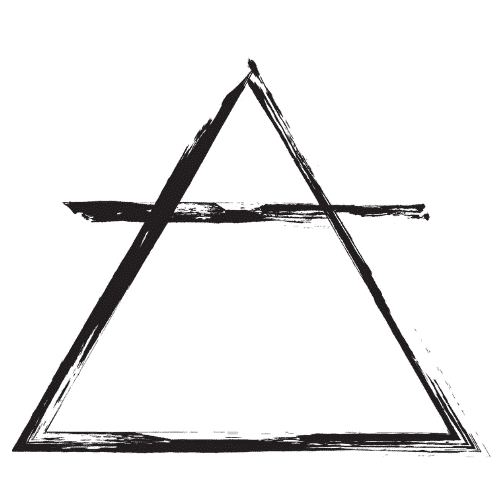
Air
Gemini, Libra, and Aquarius

Earth
Taurus, Virgo, and Capricorn

Water
Cancer, Scorpio, and Pisces

Fire
Ares, Leo, and Sagittarius
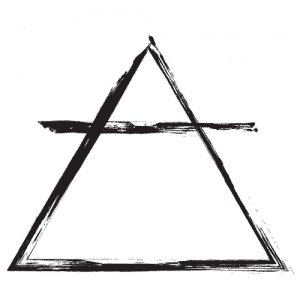
Air
Air relates to communication, intelligence, and adaptability. This element embodies the breath of life and links with cleansing power. Air governs Gemini, Libra, and Aquarius, which leads to their charming social skills.
A birth chart with significant air usually fits with someone who thinks logically rather than emotionally. On the flip side, people with this type of birth chart can be indecisive and fickle.
Channel the air element to encourage mental clarity and for clear communication.
Earth
The earth element represents abundance, stability, and steadiness. The season it connects with most is winter. The earth element rules Taurus, Virgo, and Capricorn. This makes sense, due to these signs’ collective innate perseverance and sound minds.
A birth chart, including prominent earth, often belongs to a realistic, dependable, and rational person. But someone with earth featured in their natal chart can often be unnecessarily stubborn and inflexible.
Channeling earth can help you discover consistency and regularity in your daily routine.
Water
Water symbolizes emotion, aspirations, healing, instinct, and the universal realm. It also connects with death and rebirth. The water element rules Cancer, Scorpio, and Pisces leading to their intuitive nature and dreamy demeanor.
A birth chart featuring prominent water is likely to belong to someone who is naturally alert and aware of their surroundings. On the dark side, these signs can be moody and oversensitive.
Channeling water can help you open your emotional side and lead you closer to the spirit world.
Fire
Fire signifies creation, energy, and passion. The fire element is known to be the first element of the four, and it was created when the universe came into existence.
Fire unites Ares, Leo and Sagittarius through their shared passion and zest for life.
A birth chart featuring significant fire is usually indicative of someone who is energetic, competitive and passionate. Unfortunately, those born under such a table may also exhibit impatience and short tempers.
Channel the fire element to become self-assured, creative, and to connect to your inner child.
Our Solar System
The world of astrology is vast. It’s big, bright, and beautiful, and to understand what the stars are trying to convey, you must have an idea of what the planets mean in astrology. When you understand the worlds, it’s easier to understand your Sun and Moon signs, and you’ll be able to engage in more in-depth conversations in astrology.
You’re probably already at least a bit familiar with the planets of our solar system. After all, most of us learned about the different planets back in science class in elementary classes. But, it’s time to get schooled once again. That’s because what you’ll learn about planets in astrology may be significantly different from what you learned back at school.
In astrology, the moon and the sun are known as planets. They’re described as the ‘luminaries.’ Of course, we know that the sun and the moon aren’t planets astronomically. The sun is a star, and the moon is a moon.
However, the sun and the moon are essential celestial bodies in astrology. In astrology, Pluto is also a planet, even though it classifies as a dwarf planet.
As we live on planet earth, our globe isn’t included on the list of planets in astrology. Astrology takes an Earth-centric stance of the cosmos, so we can focus on understanding our lives as humans. In total, that makes ten major planets in astrology.
Each of these ten main planets represents a different collection of qualities and characteristics. Each planet also rules a different aspect of our lives, introducing unique directives and feels. A helpful way of understanding the planets in astrology is to think of them as characters. Each has its individual goals, interests, and roles.
Everyone has the same ten planets in their astrological birth chart. However, people express themselves differently depending on the zodiac sign they find themselves in.
The sun and the moon are the luminaries. Mercury, Venus, and Mars are the ‘inner planets.’ Both the luminaries and the inner planets ‘shift’ relatively quickly from zodiac sign to sign. That means they have more of an influence on shorter-term aspects.
Jupiter and Saturn are renowned as the ‘social planets’ or ‘transpersonal planets.’ This is because they rule the areas of our lives that relate to interpersonal aspects. However, some people may label these two giants as either inner or outer planets, too, as they sit in the middle.
Lastly, we reach the ‘outer planets’ which are Uranus, Neptune, and Pluto. These planets move slowly through the zodiac chart, guiding significant parts of your life and self, as well as society and the community.
When someone describes a planet as ‘benefic,’ it refers to their link with welcoming positive vibes. Jupiter and Venus are known to be benefics.
On the other hand, ‘malefic’ planets are famous for having tougher and more destructive energies, although we require this power, nevertheless. Saturn and Mars are known for being malefic planets.
The planets affect us depending on where they are in the zodiac at any given time. Planets move through different zodiac signs as they travel around the sky, and their energy affects us differently depending on the sign they’re located. Think of the process as applying a filter over an image.
Once you understand where each of the planets is in your chart, you’ll know how you direct their energy and what parts of your life they affect. You can even analyze the relationships between the planets. These are known as aspects.
It’s essential to understand that the planets themselves don’t affect how things happen. It’s more relevant as to where they are and how they interact with other parts of your chart.
Are you ready to learn more about each of the planets in astrology? Let’s get to know the major players and each of their unique ‘characters.’
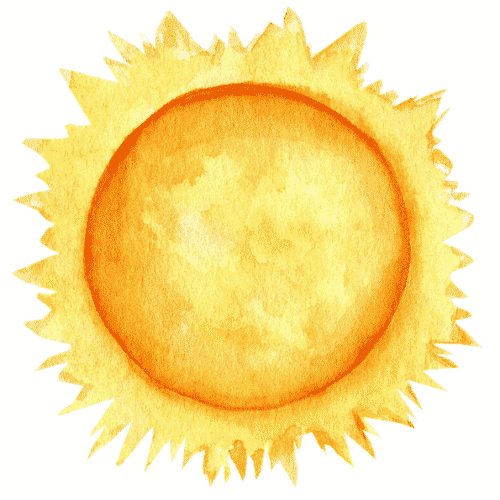
Sun
Leo
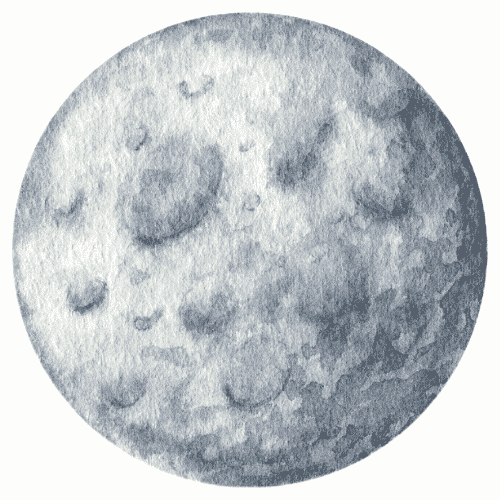
Moon
Cancer
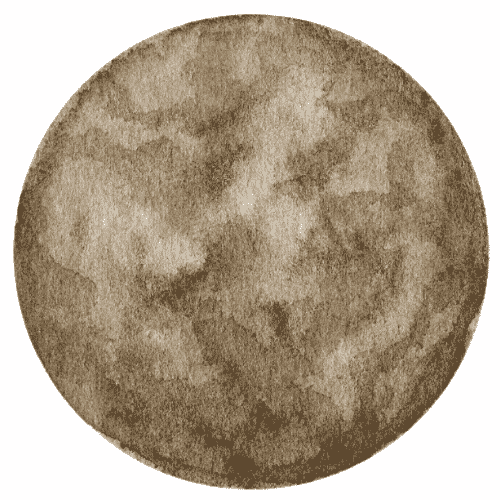
Mercury
Gemini & Virgo
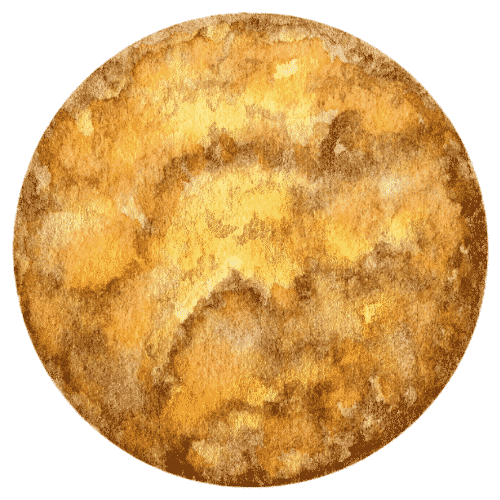
Venus
Taurus & Libra

Mars
Aries
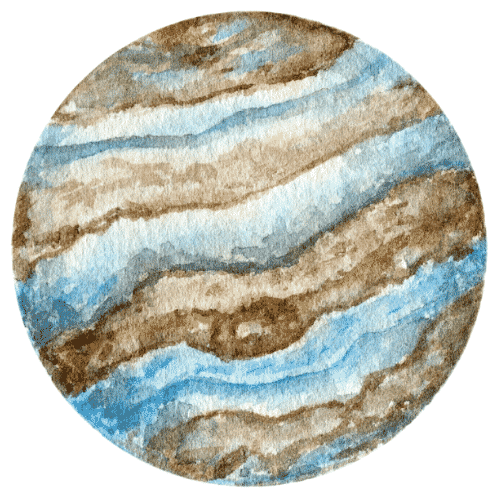
Jupiter
Sagittarius
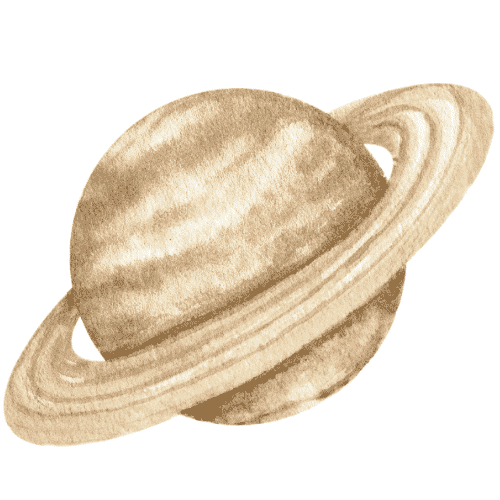
Saturn
Capricorn

Uranus
Aquarius

Neptune
Pisces
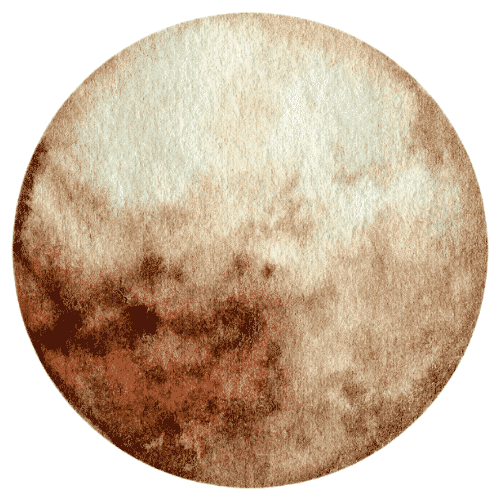
Pluto
Scorpio

Sun
Oh, the great ball of fire! The fiery, bold, and bright sun is at the center of our solar system. The sun is the big boss, depicting the forecast for your horoscope. In astrology, the sun is the very essence of your personality.
The sun lights up and gives color and vibrancy to the world around us. It is a star we revolve around, and it gifts us all life. As such, our sun signs are an essential part of our astrology and who we are.
Our magnificent orb of flames represents our ego, driving what we need to do in life and who we are at our core. It’s said that people who embrace and support their sun placement are usually happy and fulfilled. While we have many influences in astrology, the sun is perhaps the most essential to our unique personality and spirit.
The sun naturally rules Leo and is the planet of the self, the conscious mind, life purpose, and innovative energy.
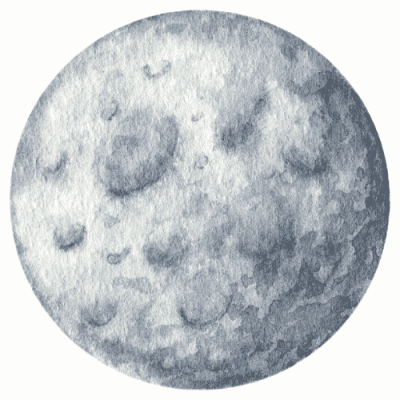
Moon
The moon is gentle, emotional, sensitive, empathetic, nurturing, and nostalgic. The mother-figure of our galaxy, the moon symbolizes our inner emotions and feelings. These are the parts deep within us that we struggle to express.
The moon also embodies our maternal side, our mother, our memories, and even what foods we like to eat. She rules the more vulnerable and exposed sides of us, the parts we would usually be afraid to reveal to others unless we feel intimate and safe with them.
She naturally rules Cancer and is the ‘planet’ of emotion, feminine energy, security, stability, and instincts.
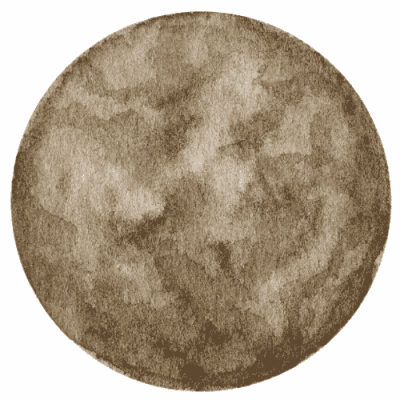
Mercury
If you’ve already touched upon astrology, you may know Mercury for its infamous retrograde periods more than anything else. Sure, Mercury may turn everything in your world upside down, but other than that, the planet affects how we connect, share information, and travel.
Think of Mercury as the messenger of the gods. Communication, transmitting information, and moving around is what this planet is all about. Mercury tells us a lot about our communication style and how we process and understand information and manage our schedules.
Mercury naturally rules Gemini and Virgo. It’s the planet of communication, expression, reason, and intellect.
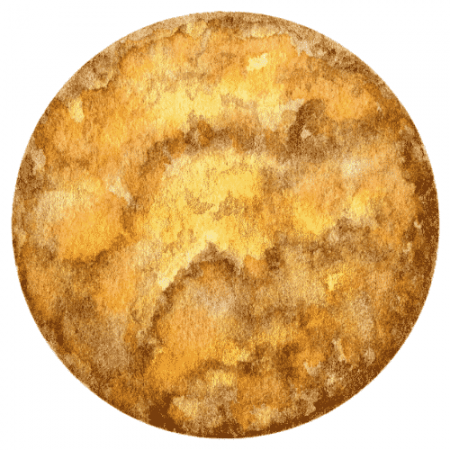
Venus
Ah, lovely, beautiful Venus. This planet is one of all things sensual, romantic, and passionate. After all, Venus is named after the goddess of love herself.
Venus also associates with money. Venus links to the cash we spend on frivolous products and experiences that bring us pleasure and happiness.
Think of Venus as like the Valentine’s Day of all the planets in our solar system.
Venus symbolizes the way you love others, how you understand the financial value, and how you experience and indulge in sensual pleasure and luxury.
This romantic planet naturally rules Taurus and Libra and embodies romance, beauty, and pleasure.
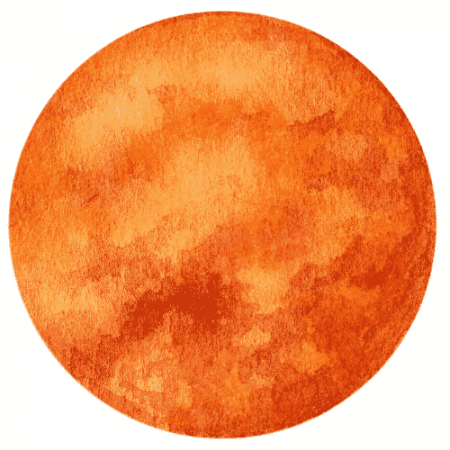
Mars
Mars is wild and fiery. After all, the planet is named after the god of war.
The planet symbolizes how we fight and assert ourselves, oozing determination, drive, and unrestrained, animalistic energy. Likewise, Mars shows us how we chase our dreams and connect to our libidos and sexual stamina.
The red planet lives up to its nickname with its burning hot intensity and passion.
When it comes to passions, sensual romance surrounds Venus, but Mars rules over our more animalistic sexual drive and desires. Venus is the fluttery butterflies in our stomach, while Mars represents our primal, physical urges.
Mars naturally rules Aries and is the planet of action, sexual drive, aggression, and raw energy.
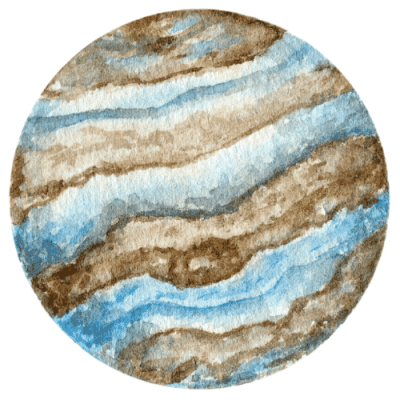
Jupiter
Jupiter is the biggest planet in our solar system. It also holds the most significant load of luck, positivity, and optimism. As such, Jupiter often welcomes growth, opportunity, and great vibes with its looming presence.
The planet helps us open our minds through education, life experiences, and spirituality. With it, we can broaden our horizons and experiment and grow in life.
This planet helps us chase our dreams and desires, no matter how large they may be.
Jupiter naturally rules Sagittarius. It’s the planet of good fortune, abundance, optimism, growth, philosophy, expansion, and philosophy.

Saturn
If the moon is our maternal figure in the solar system, think of Saturn as our cosmic father figure. Picture Saturn as the stern parent who’s slightly rigid, traditional, and strict. While the energy can be a bit demanding, restrictive, and even challenging, it’s there to help us flourish and become more responsible.
Saturn is the greater malefic. He signifies boundaries, limits, restraints, and the relationship with the paternal.
If you have some prior knowledge of astrology, you may be familiar with Saturn concerning the famous Saturn return. The Saturn return occurs in everyone around their late twenties, leading to a harsh existential breakdown that clears the way for a new adulthood path.
Saturn is all about tough love, hard work, and overcoming challenges. But understand that as a formidable father, Saturn is only hard on us because he wants us to become the best, most mature, and wise version of ourselves.
The planet naturally rules Capricorn and represents life lessons, discipline, limitations, and tough love.

Uranus
Uranus is all about shaking up the standards, so expect anything when it comes to this planet. Uranus rejects the status quo, challenges tradition, and looks to innovation and progression.
The planet is progressive, creative, and forward-thinking. Uranus can be susceptible to alterations and changes. With Uranus, you never know what’s coming up next, which can be exciting and daunting.
Uranus is nicknamed the ‘great awakener’ as it shifts and transforms the world in various ways through revolutions, technology, and innovation on a global level.
Of all the planets, Uranus is the most unpredictable. Yet it’s pioneering and unique energy is necessary so that life is exciting, and we can all move forward. Uranus naturally rules Aquarius, and it’s the planet of originality, revelations, and progressiveness.

Neptune
Other-worldly and wistful Neptune is the most mystical, enchanting, and ethereal of the planets. Neptune symbolizes psychic intuition and spiritual tuning, as well as dreams and creative expression.
The planet’s meanings are deep, signifying dreams, illusion, and fantasy. As you can tell, Neptune tends to separate from reality a bit. The planet relates to your sense of escapism and the activities you may engage in to cope with the starkness of reality.
If you can avoid lulling into the escapist tendencies Neptune can influence, the planet can help you connect to your sensitivity, psychic energy, and spiritual strength.
Neptune naturally rules Pisces and is the planet of dreams, mysticality, spirituality, and idealism.
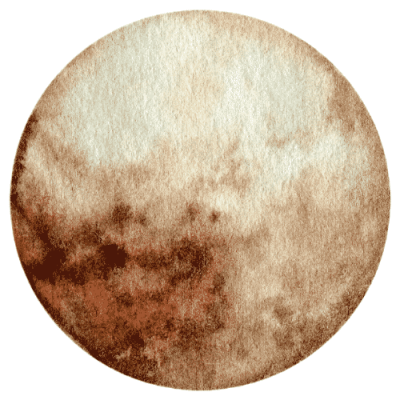
Pluto
Pluto may have been marked as a ‘dwarf planet’ by scientists in 2006, but it is still very much considered a planet in astrology. Named after the ruler of the underworld, Pluto can be intense, and sometimes even dark.
Pluto embodies the energy of transformation, which can cover a lot of ground. Think of death and rebirth, day to night, endings, and new beginnings. Pluto governs the extreme ends of any scale.
As Pluto is the furthest ‘planet’ from the earth, its influences are often felt on a collective, societal, or even global scale rather than a personal level.
Pluto naturally rules Scorpio and is the planet of transformations, the underworld, and intensity.
The Houses
Similar to a clock, the zodiac divides into 12 segments. These segments are known as houses, and a different star sign rules each one. The zodiac starts with the first house and moves counter-clockwise.
Each house links with a set of traits. These features link to the self before expanding outward into society and beyond.
When you were born, the planets were in certain signs and houses. When an astrologer assesses your birth chart, they merge the meaning of each planet, the house it’s in, and the sign it’s in to understand the obstacles, gifts, and experiences you’ll have in your lifetime.
When a planet visits a house, they illuminate that area of the chart and energize that house’s attributes. Astrologers use the houses to concentrate on which areas of your life will come into focus, and where you can take the best course of action.
The first six houses are ‘personal houses’ while the last six are the ‘interpersonal houses.
Let’s learn more about each house.
The First House
The first house starts the zodiac. Unsurprisingly, it covers all the ‘firsts.’ These firsts include impressions, leadership, fresh initiatives, beginnings, the self, appearance, and more.
The sign found on the cusp or starting edge of the first house is known as your rising sign or ascendant, which is ruled by Aries.
The Second House
The second house relates to all matters surrounding your immediate material and physical environment. This includes taste, smell, sound, sights, and touch. The second house also rules financial income, money, and self-esteem. The bull – Taurus governs the second house.
The Third House
The third house rules all types of communication. This includes talking, thinking, and even gadgets and devices like mobile phones, pages, and instant messaging apps.
This house also relates to siblings, neighborhoods, local travel, schools, libraries, and community matters. Gemini rules the third house.
The Fourth House
Ruled by Cancer, the fourth house lies at the bottom of the zodiac wheel. As such, the fourth house governs the foundation of everything. This includes your home, fundamental security, privacy, your parents (specifically your mother), children, nurturing, and your maternal side.
The Fifth House
The fifth house relates to self-expression, drama, creativity, romance, fun, play, and color. Therefore, it comes as no surprise that theatrical Leo rules the fifth house.
The Sixth House
The sixth house dominates health and service. It links to schedules, organization, fitness, diet, exercise, routines, and healthy living. Virgo rules the sixth house.
The Seventh House
The seventh house is the labyrinth of relationships and other people. It rules all partnerships (business and personal) and relationship-linked matters, including contracts, marriage, and business deals.
The Eighth House
Ruled by Scorpio, the eighth house is a mysterious realm. The sector governs birth, death, transformation, mysteries, sex, and bonding at the most exceptional level. The eighth house also rules other people’s property and finances, for example, in real estate, investments, and inheritances.
The Ninth House
The ninth house relates to the higher mind, expansion, foreign languages and exploration, international and long-distance travel, optimism, luck, risk, philosophy, publishing, and so much more. Covering a lot, Sagittarius rules the ninth house.
The Tenth House
Sitting at the top and most public area of the chart, the tenth house rules various aspects of life. These areas include tradition, public image, discipline, rules, boundaries, achievements, fame, honors, and fathers and fatherhood.
The cusp or border of the tenth house is known as the midheaven. This cusp helps astrologers understand your career path in life.
The Eleventh House
The eleventh house relates to teams, groups, society, friendships, technology, video, social justice, rebellion, and humanitarian causes. The house also governs originality, surprises, astronomy, science fiction, and everything futuristic. Aquarius rules the eleventh house.
The Twelfth House
Finally, the zodiac completes with the twelfth house. As you may have guessed, the twelfth house governs endings.
This house relates to tying up loose ends, the afterlife, old age, surrender, and anything else linking to endings. The twelfth house also associates with hospitals, jails, secret enemies, and separation from society. It also covers the imagination, arts, film, dance, poetry, and the subconscious mind. Pisces rules the twelfth house.
The Language Of The Houses: The Ascendant
When you observe your birth chart for the first time, it’s challenging to know exactly where to focus. Why are specific areas marked with symbols, while others are clear? How do I read the chart? What do the symbols mean?
The good news is that reading a birth chart is straightforward. But to learn, you must first discover your anchor: The ascendant.
The ascendant is otherwise known as the rising sun. It is the furthest left point of the central horizon line. It shows which zodiac sign was rising from the eastern horizon at the exact time of your birth.
While the sun reveals our truth and the moon signifies our emotions, the ascendant displays our landscape. This will vary, depending on which zodiac sign was revealed at your moment of birth.
For example, communication will be prevalent in the life of a Gemini Ascendant. But innovation and uniqueness will be a focus of an Aquarius ascendant’s experience.
The ascendant also exposes a birth chart’s ruling planet. Generous Jupiter governs a person with a Sagittarius ascendant. Neptune rules a Pisces ascendant.
As you peruse your birth chart, you may see that you have several planets in individual houses. If you have four or more planets in a single house, this is called a stellium. On the contrary, some houses may be empty. Don’t worry, this is normal.
The birth chart is simply a glimpse of the sky at your exact birth time. Most celestial bodies shift together in clusters, so they often remain close together. While the empty spaces don’t signal deficiencies, the spots of the planets display essential information.
The Aspects
Next up, we’ll cover the aspects of astrology. Think of aspects like therapy. To dig deeper into who we are as people, we must first consider our relationship with our parents. Then to dive even greater, we analyze our parents’ relationship with one another and how it helped create our fundamental understanding of the world.
If you have some prior knowledge of astrology, you may have heard astrologers speak about the aspects. For example, they may make astrology shorthand by saying something like ‘Jupiter is opposing Uranus this week.
Whenever we discuss planets in astrology, we’re talking about that planet’s place in the zodiac. In other words, the sign that planet is situated. When astrologers say ‘Jupiter is opposing Uranus’ what they’re noting is that the sign Jupiter is in (Libra) is in opposition to the sign Uranus is in (Aries.) That’s because Libra and Aries are complete opposites.
The aspects refer to the explanations of relationships between planets and the zodiac signs they’re currently in.
Understanding the details and the relationships between the planets helps you comprehend more about your birth chart. You can access a window into the exciting stories that are playing out in your life.
An aspect of astrology happens when a planet is at a specific number of degrees away from another planet or place in the birth chart. When two planets are around 90 degrees apart, we say that they’re in a ‘square’ aspect. That’s because a square has four 90-degree angles.
With the character of a square, this means that the two planets are in a relationship. After all, think of the language we tend to use in English that involves squares. Such as ‘squaring up’ before a fight. Or a ‘square peg in a round hole.’ This tells us that there’s something tense and adversarial about a square.
We’ll cover the significant aspects below. Next time you gaze at your birth chart, you’ll have a more comprehensive and layered analysis of your map, just like your personality and life.
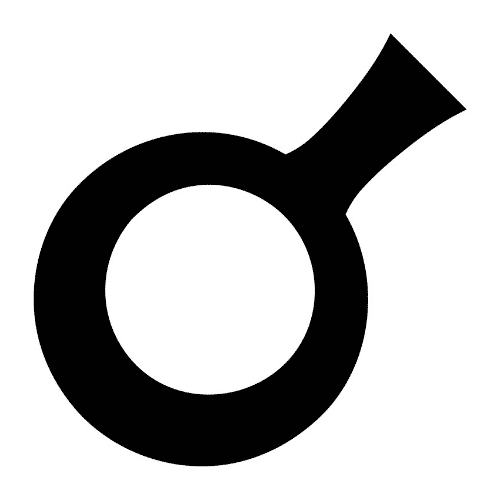
Conjunction
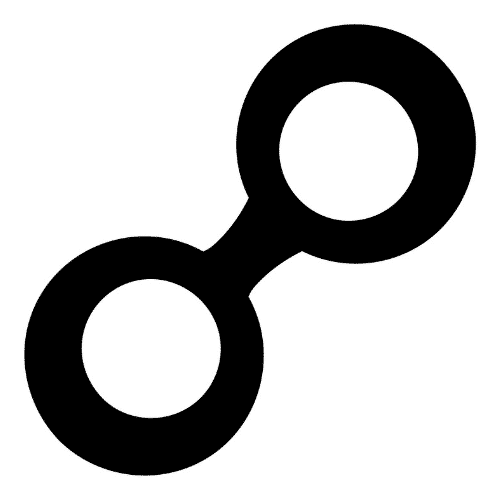
Opposition

Square
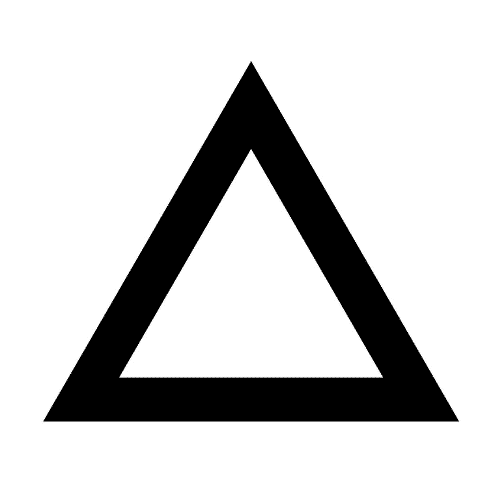
Trine

Sextile
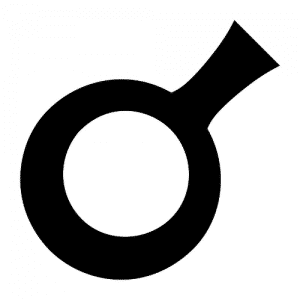
Conjunction
A conjunction is a harmonious and balanced aspect. It means that there’s a connection that works in one way or another. If your sun sign is in conjunction with another person’s sun sign, this is good news. It means that your personalities will instantly work with one another.
If your sun sign is in conjunction with someone’s Mercury, you’ll be able to understand their thought process with ease. This is even if their actions don’t make any sense to you. That’s because Mercury is known as the communication planet.
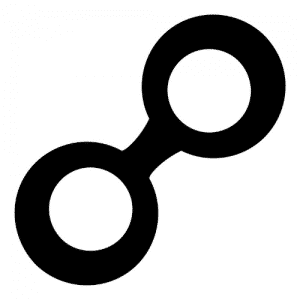
Opposition
As it sounds, an opposition is usually significantly disharmonious and tense. However, the opposition sometimes has a motivating effect on people. Think of opposition as the love slash hate aspect.
When you grow to love and know someone deeply, they can often grate and irritate you. If there’s an opposition between two personalities, in some cases, the tension can result positively, if both people are willing to talk through the issues.
In a natal chart, an opposition between two planets depends on what you process from it. But if conflicts overcome, this benefits the individual considerably.

Square
As we brushed upon ever so slightly earlier, a square is known as a hard aspect. The square occurs when two planets are in signs that are 90 degrees apart, sharing the same quality (cardinal, mutable, or fixed) but nothing else.
Square brings up issues that we are forced to address until breaking point. These problems arise from two different energies trying to travel in two completely different directions with the same amount of power.
For example, if someone’s Mars is square Venus in a chart, this individual’s sexual desires like spontaneity and independence, would contradict what they require in a relationship. For example, security and family.
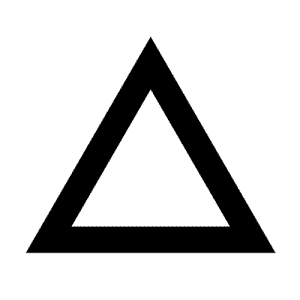
Trine
Trine occurs when two planets are four signs apart. This is perhaps the most harmonious aspect you can experience.
When two planets are trine, they are in the same element. This means they’re working with the same purpose. The planets found in a trine complement and enrich one another. Anyone who benefits from this aspect is cosmically gifted.
For example, if Venus is trine with another individual’s Mars, your sex life would be amazing. Your home life would be effortless and harmonious, too, hence creating a perfect match.

Sextile
The Sextile happens when two planets are two signs apart. The vibrancy this aspect introduces to these two planets is one of ease and cooperation. While it isn’t the most powerful of aspects, it’s a friendly one. Imagine this aspect as two strangers exchanging fun and friendly small talk at a birthday party with a couple of beers.
Two planets that might be significantly different energetically may be able to cooperate more efficiently and carefree when they’re involved in a sextile.







